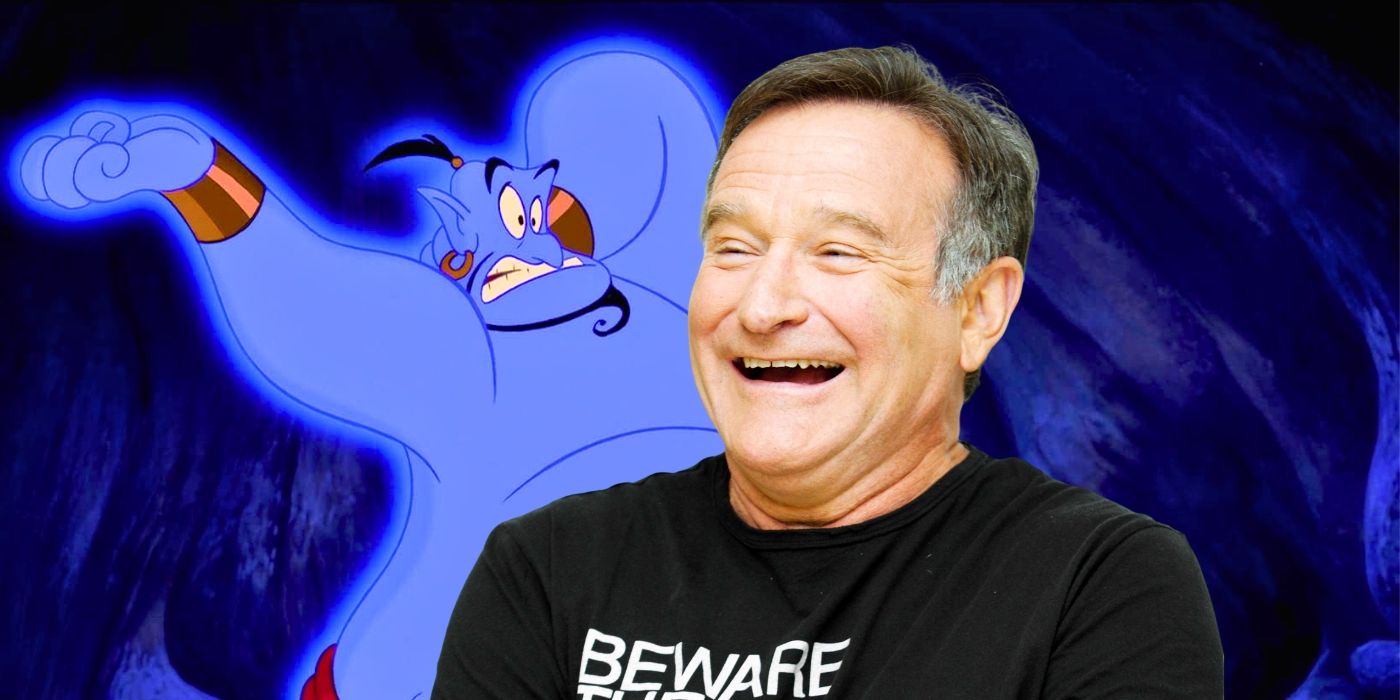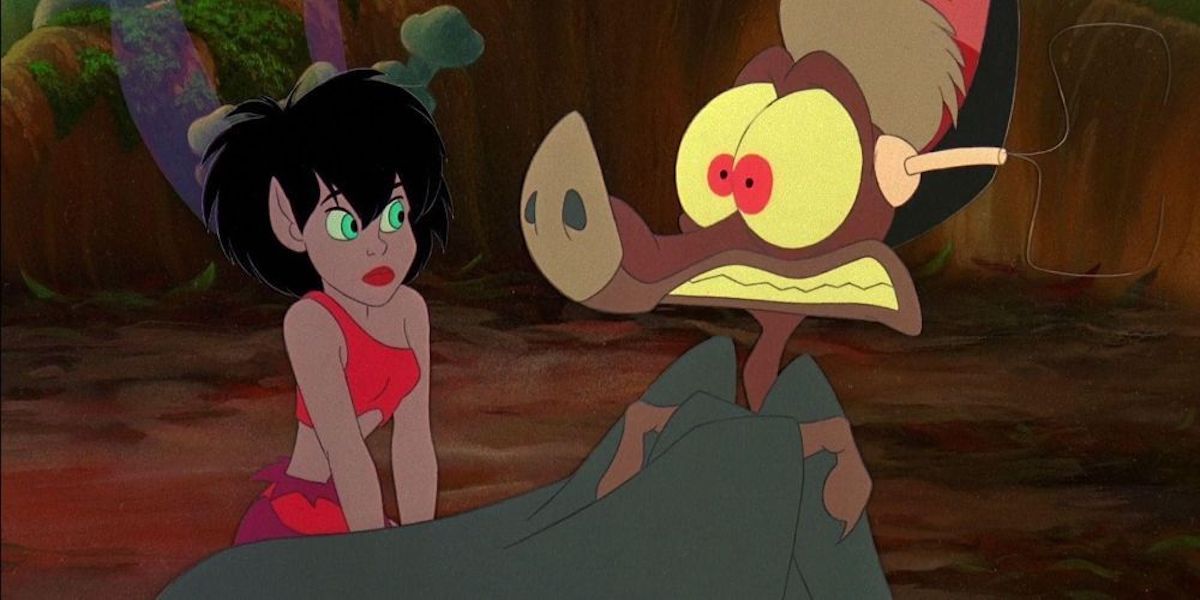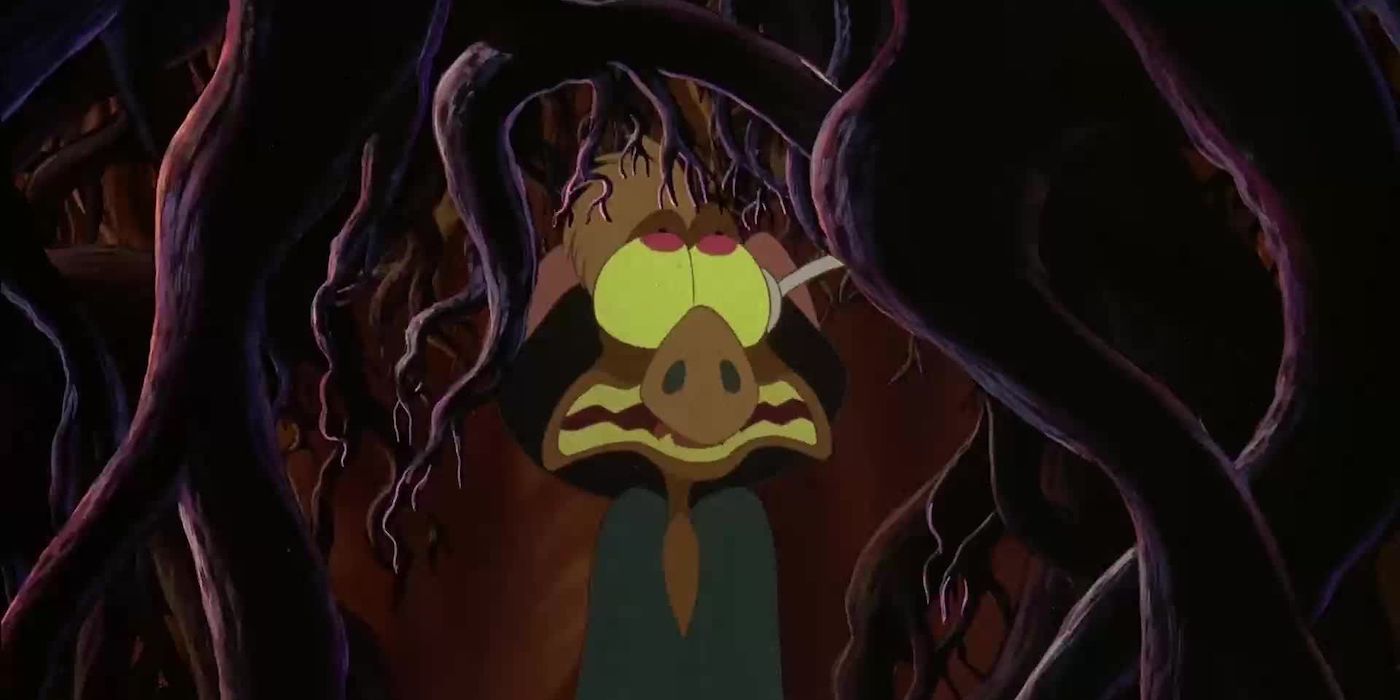The voice acting work of Robin Williams is legendary. From Happy Feet to Robots, his emphatic vocalizations brought so much joy to each of his productions for audiences of all shapes and sizes. Williams' most recognizable voice-acting work was as the Genie in Disney’s Aladdin in 1992, but his best voice-acting performance came out seven months before that. In FernGully: The Last Rainforest, Williams portrayed Batty Koda with an eccentric flare that only he could provide. As the fruit bat who escaped from being experimented on in a science lab, his spontaneous wit provided the director Bill Kroyer with an abundance of improvised material. Williams put his heart and soul into his first voice-acting role, and it was by far his best animated role.
Batty’s Lack of Inhibitions in 'FernGully' Matched Robin William’s Energy
The role of the Genie was far more reserved than Batty, but not because of the magical armbands or the lamp. Disney takes their reputation as wholesome family fun very seriously, and that meant some of the ideas Robin Williams would think of performing in his improvised work probably wouldn’t be considered appropriate for their brand. When watching FernGully, though, it’s easy to pick out moments that are meant for adult audience members that wouldn’t have made it into a Disney film.
Adult viewers could tease out the themes of abuse and trauma in both of these characters that Robin Williams expertly wove into his comedic performances. The Genie was a slave to whoever possessed his lamp and had been betrayed by his former masters. Batty Koda’s abuse was far more tragic, though. The Genie was a slave but was also given “phenomenal cosmic powers”, whereas Batty was left with a brain implant that spontaneously triggers electrical surges in his brain making him lose his mind occasionally, and the way Williams was able to dramatically shift the intensity of his delivery portrayed this particular characteristic of Batty as no one else could.
This deeper level of trauma was familiar to Robin Williams, and it fed into his comedic style throughout his career. Much like his character in Patch Adams, he believed that laughter was the best medicine and was vehemently against taking everything too seriously. Williams suffered from extreme depression and developed Lewy Body Dementia towards the end of his life, but continued insisting on being lighthearted and fun whenever possible. Batty’s traumatic backstory enabled Williams to bring amazing depth to the character.
Robin Williams' Improvisational Skills Shine Brighter in 'FernGully'
Williams’s stand-up comedy performances consisted of many impersonations and improvisational interactions with the audience, and FernGully utilized these talents in the best ways. With the amount of recorded dialogue that Williams provided, Kroyer has said, "The toughest thing for me was picking the best Robin Williams take because he would do 10 improvisations, and they’d all be brilliant". Like many of Williams' roles, much of what actually ended up in the film was his own spin on the scripted material.
One shining moment of Williams’s performance was The Batty Rap. After being introduced to the community of fairies in the rainforest by Crysta (Samantha Mathis) Batty tells the story of the experimentation he endured in the lab he escaped from. This particular musical interlude brought the best of his comedy style to the film. Despite the lyrics of the song describing astounding acts of torture, the vocal inflections Williams uses manage to make the song seem fun and lighthearted. The song also uses many of the improvised lines he provided, like “All of our cosmetics are non-carcinogenic” which alludes to scientists testing make-up products on lab animals. The adults catch on to the implied torture in those words, but kids laugh because Batty uses a berry to smear lipstick on before jumping back into the rap. His ability to make both adult and child audiences laugh for different reasons at the same moment was used in almost every line of dialogue the film used for Batty.
Batty’s quirks are what make the character so funny and unpredictable. The antenna installed in his head glitches with electrical shocks every so often, and the film utilized these spasms by plugging in the most spontaneous improvised lines that Williams provided. The short circuit Batty experiences seems to trigger memories of the things humans would say around Batty, including media personalities he must’ve heard while the scientists listened to the radio or watched tv. When Batty is warning the fairies about the dangers humans bring, Zak (Jonathan Ward) flicks his antenna which causes him to remember someone saying “Price check on prune juice, Bob,” which isn’t exactly something you’d expect to hear in a lab, but it could be something he overheard on media playing in the lab. It becomes a plot point when Zak is trying to stop the Leveler. Batty is carrying Zak, convinced they have to get away from the machine, but Zak tweaks the antenna a few times, and Batty begins impersonating John Wayne going into battle and mentioning dilithium crystals from Star Trek while flying Zak exactly where he wanted to go. Williams providing so much brilliant improvised work for the character of Batty is one of the major reasons why this character is his best animated character.
Robin Williams' Talent Was the Diamond in the Rough
There will never be a talent quite like Robin Williams ever again. Some comedians may prove similar in certain ways, but there are so many aspects of his personality that he let loose in every performance that made him completely unique from the rest of his comedic peers. Trying to discern which of his performances is the best is like trying to discern which cut and polished diamond is the best one. A noticeable pattern in considering which of his performances was best, though, is that he rarely had negative responses to his performances. He had an astounding range of emotional expression, and because of the freedom Kroger allowed him while recording dialogue, Williams truly provided his best voiceover acting his first time at bat playing Batty in FernGully.



